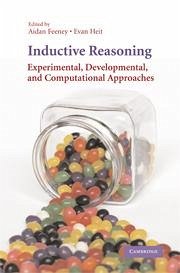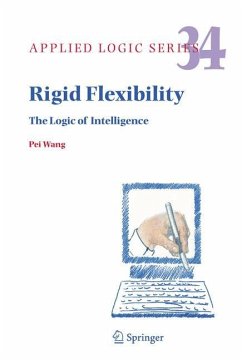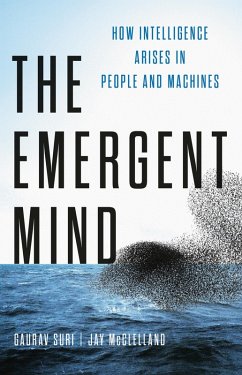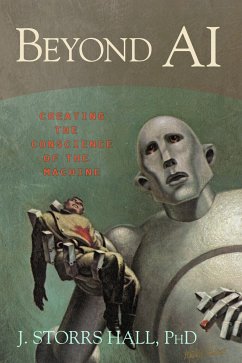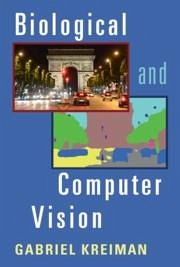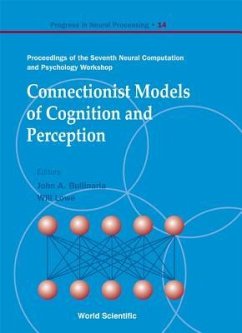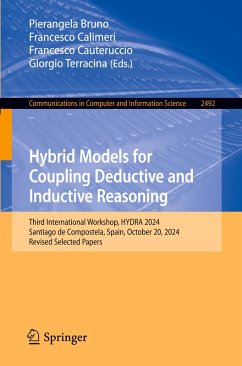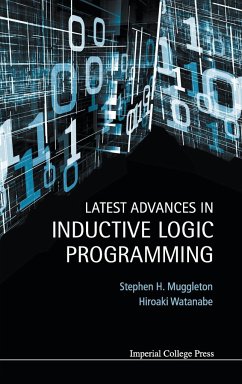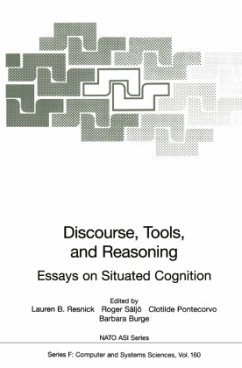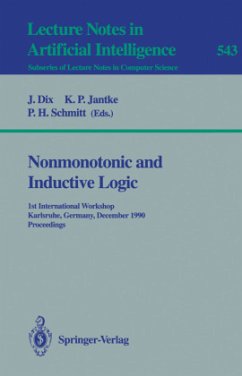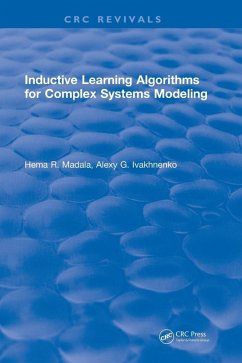Aidan Feeney / Evan Heit (eds.)
Gebundenes Buch
Inductive Reasoning
Versandkostenfrei!
Versandfertig in über 4 Wochen
Weitere Ausgaben:

PAYBACK Punkte
44 °P sammeln!




The first book on the psychology of inductive reasoning in 20 years.
Aidan Feeney is Senior Lecturer in Psychology at Durham University. He received his B.A. in Psychology from Trinity College, Dublin in 1992 and completed his Ph.D. in the Centre for Thinking and Language at the University of Plymouth. He was appointed Lecturer in the Department of Psychology at Durham University in 1998 where he became Senior Lecturer in 2005. Dr Feeney's research has been supported by a number of grants from the Economic and Social Research Council (UK). He has published approximately twenty journal articles, book chapters, and papers on the psychology of hypothesis testing and reasoning. He has published articles in Thinking and Reasoning, Memory and Cognition, Psychonomic Bulletin and Review, British Journal of Psychology, Quarterly Journal of Experimental Psychology, and Applied Cognitive Psychology.
Evan Heit is currently Professor of Psychology and Cognitive Science, and Founding Faculty, at the University of California, Merced. Previously, Professor Heit was on the faculty in the Psychology Department of the University of Warwick, UK. He has undergraduate degrees in Computer Science and Psychology from the University of Pennsylvania and a Ph.D. from Stanford University. He also carried out post-doctoral research at the University of Michigan and Northwestern University. Professor Heit has published more than fifty papers on the psychology of reasoning, memory, and categorization. His research has been funded by the National Science Foundation, the National Institutes of Health, the Economic and Social Research Council (UK), and the Biotechnology and Biological Sciences Research Council (UK). He is currently on the editorial board of Memory and Cognition and the Journal of Experimental Psychology: Learning, Memory, and Cognition, and is Associate Editor of the Journal of Memory and Language.
Evan Heit is currently Professor of Psychology and Cognitive Science, and Founding Faculty, at the University of California, Merced. Previously, Professor Heit was on the faculty in the Psychology Department of the University of Warwick, UK. He has undergraduate degrees in Computer Science and Psychology from the University of Pennsylvania and a Ph.D. from Stanford University. He also carried out post-doctoral research at the University of Michigan and Northwestern University. Professor Heit has published more than fifty papers on the psychology of reasoning, memory, and categorization. His research has been funded by the National Science Foundation, the National Institutes of Health, the Economic and Social Research Council (UK), and the Biotechnology and Biological Sciences Research Council (UK). He is currently on the editorial board of Memory and Cognition and the Journal of Experimental Psychology: Learning, Memory, and Cognition, and is Associate Editor of the Journal of Memory and Language.
Produktdetails
- Verlag: Cambridge University Press
- Seitenzahl: 374
- Erscheinungstermin: 3. September 2007
- Englisch
- Abmessung: 230mm x 161mm x 28mm
- Gewicht: 621g
- ISBN-13: 9780521856485
- ISBN-10: 0521856485
- Artikelnr.: 22720476
Herstellerkennzeichnung
Libri GmbH
Europaallee 1
36244 Bad Hersfeld
gpsr@libri.de
Für dieses Produkt wurde noch keine Bewertung abgegeben. Wir würden uns sehr freuen, wenn du die erste Bewertung schreibst!
Eine Bewertung schreiben
Eine Bewertung schreiben
Andere Kunden interessierten sich für




